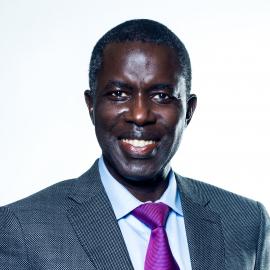After a difficult year in 2020 and in the wake of the 2021 economic crisis, Ostrum Asset Management (Ostrum AM), an affiliate of Natixis Investment Managers, anticipates a return to the pre-crisis trend in 2022. However, markets are still expected to be affected by many risk factors and uncertainties. With inflation expectations on the rise, Philippe Waechter, Head of the Economic Research department, Stéphane Déo, Head of Market Strategy and Ibrahima Kobar, Chief Investment Officer at Ostrum AM present their views on the different sectors and asset classes.
Where to find value in 2022?
- Sovereign: exposure to inflation risks, sustainable bonds and emerging countries;
- Credit: take credit risk (crossover, high yield) rather than increase duration;
- Equities: exposure to issues that can still generate growth, exposure to issues that are resilient to inflationary pressures.
What is the outlook for responsible investment?
- Continued investment in the sustainable bond market:
• Nearly 900 billion issued by 2021;
• Benefit from the evolution of the "greenium “;
• Support sovereign issuers in their energy and social transition.
- Ostrum AM will continue to label its funds and implement an SRI approach for all its strategies;
- In terms of environmental impact, the increase in CO2 emissions has slowed down but has not yet been reduced.
What is the overall scenario for 2022?
- On the macroeconomic side, the assumption is a return to the pre-crisis trend from the second half of 2022;
- This will not be accompanied by persistent inflation;
- Central banks will remain moderate in their interventions;
- As a result, inflation premiums are reduced on the long end of interest rates.
What are the risks for the coming year?
- Persistent inflation and its consequences on highly indebted economic agents;
- China, which is facing a downward adjustment of its activity via real estate and the fragility of local governments;
- Emerging countries facing high food prices;
- Adaptation to climate change will accelerate with the increase in climatic events. The structure of economic activity will be disrupted. The rapid convergence towards 1.5°C will accentuate the scale of these disruptions.
What will be the profile of monetary policies in 2022?
- There has been a global reversal of central banks in 2021, with a clear trend towards monetary tightening;
- The market is facing high uncertainty, with expectations that seem far from the most likely scenario;
- A moderate rate hike is expected in 2022.
What are the opportunities and risks for the coming year?
- Credit fundamentals are very buoyant with a very low default rate, which tends to compress the risk premium:
• Interest rates remain very low and therefore borrowing capacities are very favourable;
• Companies have restored their margins and cash flows to pre-crisis levels;
• The balance sheet situation, in particular the liquidity position, is very strong.
- Inflation will remain a major issue in 2022:
• Inflation expectations are ultimately quite similar in the US and Europe with inflation well above 2% in the immediate term, followed by a rapid decline that would eventually stabilise at a level close to 2%;
• According to the markets, after the current inflationary shock, which is purely temporary, everything would return to normal;
• However, the observed evolution of prices is more than enough to have a significant impact on corporate margins, and therefore present a risk for equity markets.


